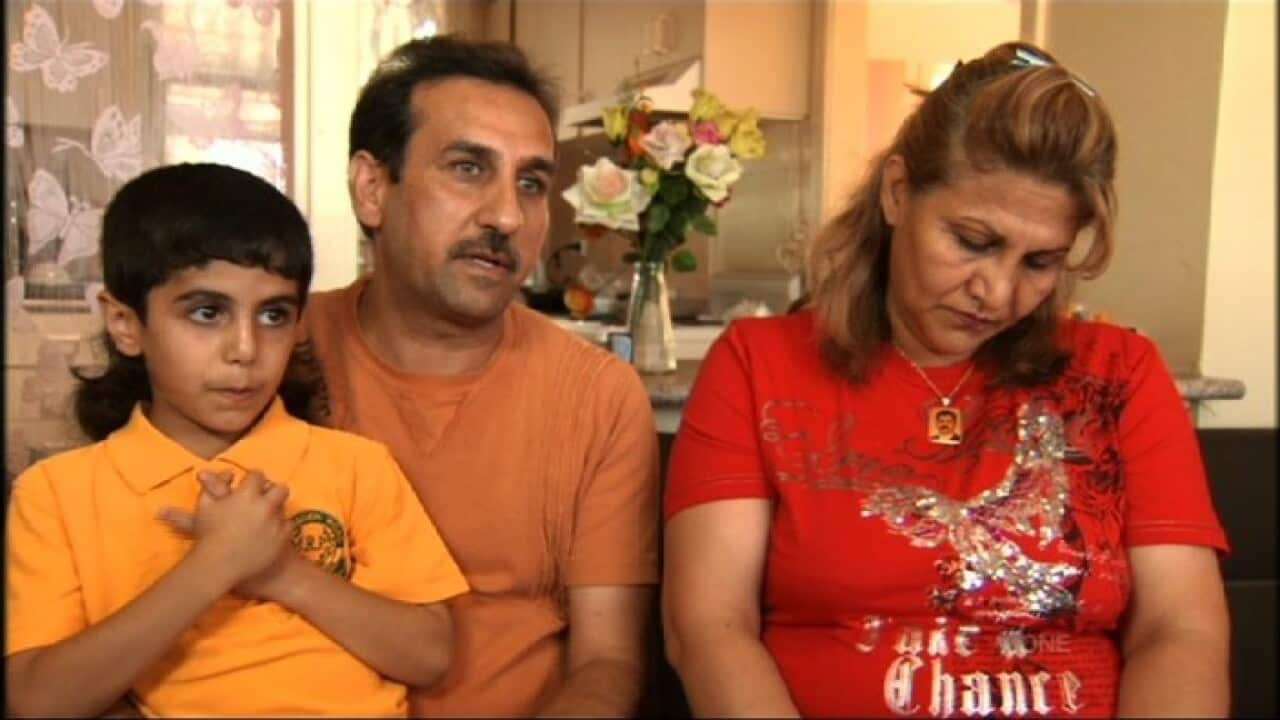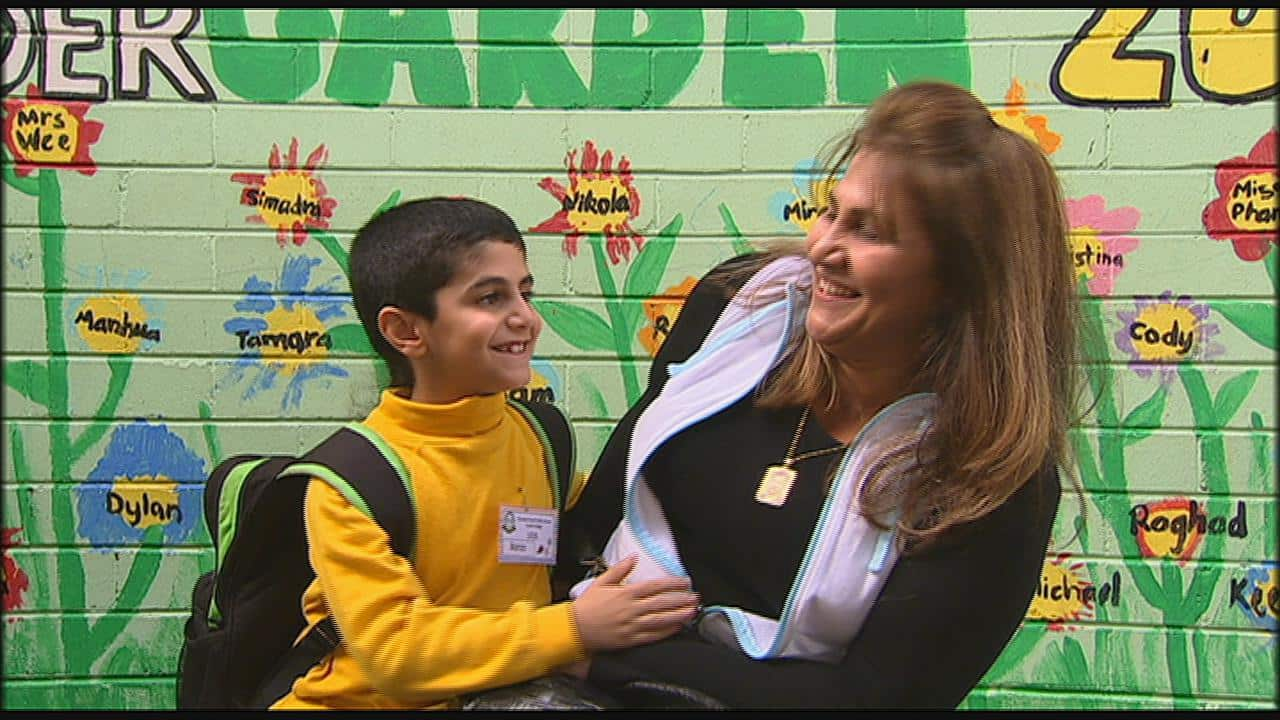Noran Zahrooni had to overcome a lot on his first day of school in 2014.
The six-year-old had just come to Australia with his family after fleeing violence in Syria. Seven years earlier they had fled their home country, Iraq, because they belong to a religious minority group, the Mandeans, and had faced persecution.
NORAN'S FIRST DAY

Refugee boy battles war trauma on first day of school
Noran's father Farhan told SBS that growing up amid bomb blasts had taken its toll.
"In Syria, they usually targeted schools and did the explosions there," he said. "So he thinks if he goes to school here he will be in danger."
Noran also spoke no English, so communicating with other kids in the classroom would be difficult.
But after some coaxing, Noran was dropped off at Marsden Road Public School in Liverpool, western Sydney for his first day in February 2014. His older brothers Raghdan, Arduan and Saman were all due to start high school the next day.
2015
More than a year later, SBS went back to visit him at school.
Principal Greg Way said his progress had been "excellent".
"He's really blossomed this year. He's someone that really strives to achieve," he said.
Mr Way said the school had a large population of refugee students and it had programs in place to help those who came in with no English.
"We're fortunate we have some Arabic-speaking teachers' aides and so they were able to sit with Noran and he developed that trust with us," he said.
Mr Way said the process of teaching students English started with "going through the basic, simple things."
"[For example], what the English names are for different parts or body or different fruits and veggies," he said. "But also learning that in their native language."

Noran's mother Ebtisam told SBS her son had struggled at first.
"It was very difficult and challenging in the beginning," she said. "He wouldn't go to school without me. He wouldn't sit in the class unless I sat with him but even then he would hold onto me."
But gradually, as Noran's English skills grew and he made a friend or two, he gained the confidence to go to school without his mother.
Farhan said he was proud of his son's progress.
"His level of education is improving big time," he said. "Even sometimes he becomes the interpreter for us because now his English is good."
Learning language
Noran’s early immersion in English may put him at an advantage long-term with research suggesting that bilingualism is good for the brain.
A UK study carried out at the University of Kent earlier this year showed that people who began learning English young had greater ability at processing information.
The study, led by Dr Christos Pliatsikas, compared brain scans of 20 people who had learned English as a second language around the age of 10 to the brains of people of a similar age who only spoke English.
"Bilingualism has been shown to increase the volume of grey matter in several brain areas that are usually connected to language learning and processing," she said.
"Everyday handling of more than one language functions as an intensive cognitive stimulation that benefits specific language-related brain structures by preserving their integrity, and therefore it protects them against deterioration in older age.”
Languages in Australia
According to the 2011 Census, there are 3,904,333 people in Australia who speak languages other than English but the rate of langauge learning in schools is on the decline.
Last year, the federal government announced a $9.8 million trial to teach langauges in 40 preschools around the country.
Listen to the SBS Radio version of this story:
The trial is part of a wider push by the government to promote languages in schools, after it was found that the number of Year 12 students studying a second language had dropped from 40 per cent in the 1960s to only 12 per cent today.
Victoria is the only state committed to compulsory language education, with a goal of having compulsory languages learning for all students in government schools, prep to Year 10, by 2025.
While most other states have compulsory languages at specific year levels, none have them after Year 8, meaning most students give up studying early.
New beginnings
Two of Noran's brothers are now attending TAFE, learning English, and the other is at high school.
Before they came to Australia, the older boys had not been in school for at least four years due to the conflict.
Farhan said the family was happy to be in Australia after a number of unsuccessful applications for refugee status. They were were finally able to move to Australia in December 2013 after being recognised as genuine refugees.
"We're very happy in Australia," he said.
"Now we are living in peace and are very happy."

